Welcome to the 70th issue of Python Monthly!
If it’s your first time here, welcome, I like you already. If you want the full back story on this monthly newsletter, head here.
The quick version: I curate and share the most important Python articles, news, resources, podcasts, and videos.
Think the Pareto Principle (80/20 rule) meeting the Python world. I give you the 20% that will get you 80% of the results.
If you're a long time reader, welcome back old friend.
Alright, let's not waste any valuable time and jump right into this month's updates.
Here's what you missed in September 2025 as a Python Developer…
Python, The Documentary 🎬
Yes, there is a new Python documentary that just came out, and I don't have to tell you that if you're a Pythonista, you have to watch it. It is very well done.
Here is a good follow up read after you watch the documentary.
Top Programming Languages 2025 📺
Usually these sort of articles are just clickbait trash, but this is one of the few places that gives good data and insight. You should check it out.
As expected Python comes first followed by JavaScript (if you combine it with TypeScript, which you should).
Does AI mean the end for the Top Programming Languages? Read the article and find out.
P.S. In December or January, I'll update my own guide to help people decide which programming language they should learn (and why).
Python Type Checkers 👨🏫
Type Checkers make a dynamic programming language like Python be a statically typed language (sort of). Ty, Pyrefly, and Zuban, are type checkers, but how good are they? Find out.
But why do we need Type Checkers? I recommend you read this too.
Feature Flags 🎏
Feature flags are a way for us to enable or disable code paths without needing to re-deploy software. Here is how to do it with Python.
Customizing Your Python REPL 🧰
Everyone is talking about this one feature coming up in Python 3.14: the new syntax highlighting in the REPL!
Here is a fun article to get you started to make that REPL fabulous.
AI Coding Trap 🚧
If you ever watch someone “coding”, you might see them spending far more time staring into space than typing on their keyboard. No, they (probably) aren’t slacking off. Software development is fundamentally a practice of problem-solving, and so, as with solving a tricky crossword, most of the work is done in your head.
News Around the World 🗺
-
China announced an interesting law. The law requires explicit and implicit labels for AI-generated text, images, audio, video and other virtual content. What do you think, good move?
-
All good in the world, everyone is happy and getting along like usual.
Big Tech News aka AI News 🏢
-
Biggest news of the month is the release of Claude Code 2.0 and Claude Sonnet 4.5. Anthropic is probably the leader right now in AI coding.
-
Anthropic agreed to pay $1.5 Billion to settle lawsuit with book authors. The settlement is the largest payout in the history of U.S. copyright cases and could lead more A.I. companies to pay rights holders for use of their works.
-
X announce their Grok Code Fast 1: a speedy and economical reasoning model that excels at agentic coding.
-
In more "is this a bubble?" news, ASML, a leading semiconductor equipment manufacturer, led a series C funding of Mistral A.I. for $1.7 billion dollars. Apparently billions just doesn't mean anything anymore.
-
Apple had their big event and announced a bunch of new hardware, with the biggest storyline coming from the new iPhone Air. You can read about all of their announcements here. There is also rumour that they are working on an AI powered web search of their own.
-
OpenAI announced updated to their GPT5 Codex, their answer to Claude Code. They also announced ChatGPT Pulse in their ever lasting goal of trying to take over your life.
-
Oracle and OpenAI signed a $300 Billion cloud deal. Somehow Oracle keeps making money. The majority of new revenue revealed by Oracle will come from the OpenAI deal.
-
In the most "who is buying this and why are they still doing this news", Meta launched Ray-Ban Display: A Breakthrough Category of AI Glasses.
-
Nvidia bought a $5 billion stake in Intel. I found this hackernews commenter's take interesting:
Nvidia's stake in Intel could have terrible consequences.
First, it is in Nvidia's interest to kill Intel's Arc graphics, and that would be very bad because it is the only thing brighing GPU prices down for consumers.
Second, the death of Intel graphics / Arc would be extremely bad for Linux, because Intel's approach to GPU drivers is the best for compatibility, wheras Nvidia is actively hostile to drivers on Linux.
Third, Intel is the only company marketing consumer-grade graphics virtualization (SR-IOV), and the loss of that would make Nvidia's enterprise chips the only game in town, meaning the average consumer gets less performance, less flexibility, and less security on their computers.
Completely useless to your career but still great 🙃
-
Hosting a WebSite on a Disposable Vape... why not?
-
This is the most random thing I have posted here ever, but also the most interesting.
-
Low earth orbit visualization... it's busy out there.
-
The most incredible WebGL game ever.
Best Resource of the Month 🥽
Big O. It's an important concept that has lasted generations of trends and hype cycles. Every single good programmer knows about it and knows the importance of Big O.
If you've been lazy and haven't taken our ZTM course on the topic, this month's article will give you a great insight into the world of Big O. Once you master it, you will be a different type of programmer.
Check out this amazing article here.
You can also check out this free Big O cheat sheet with a Big O video tutorial to help you out as well.
I have to add another one for this month. It's not tech related so it's why I'm putting it here, but I think everyone should read this once: Nine Things I Learned in Ninety Years.
Trick of the Month 🎩

MapSCII - The Whole World In Your Console. The best way to look like a true hacker in a coffeeshop.
See you next month everyone... also share this with your friends... pretty please! ❤️
By the way, I teach people how to code and get hired in the most efficient way possible as an Instructor at the Zero To Mastery Academy. You can see a few of our courses below or see all ZTM courses here.
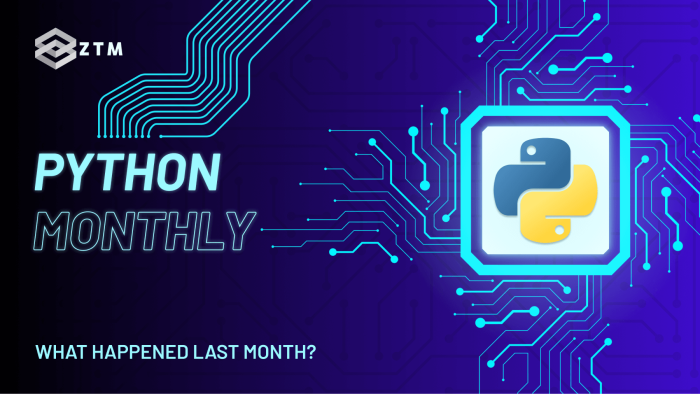

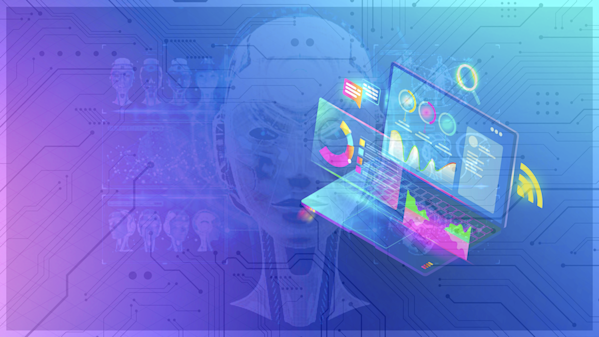
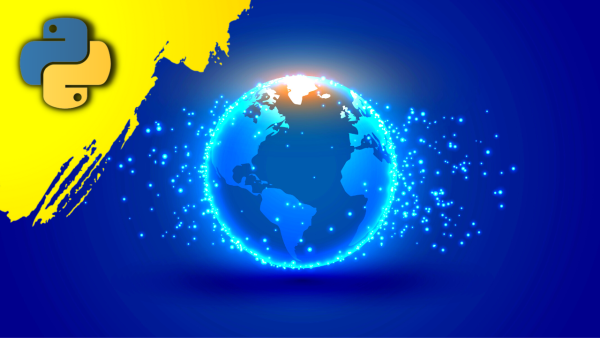
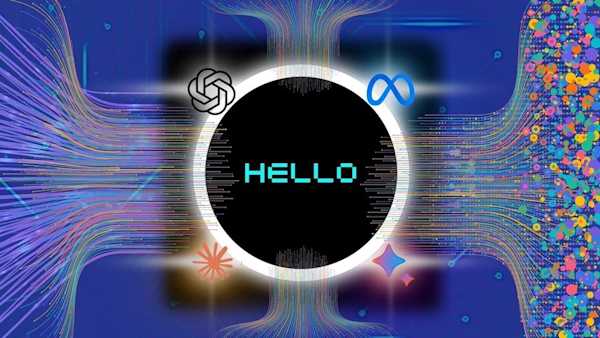
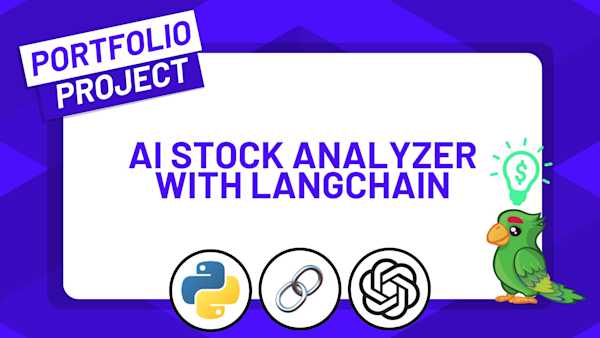
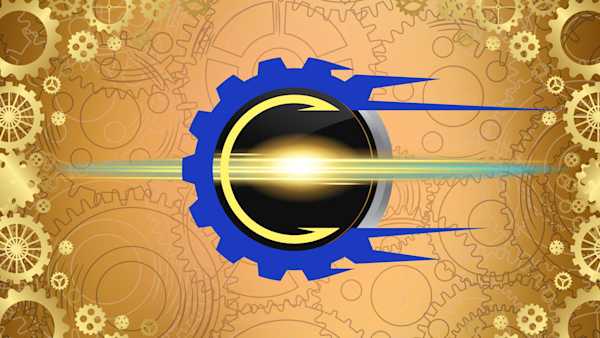
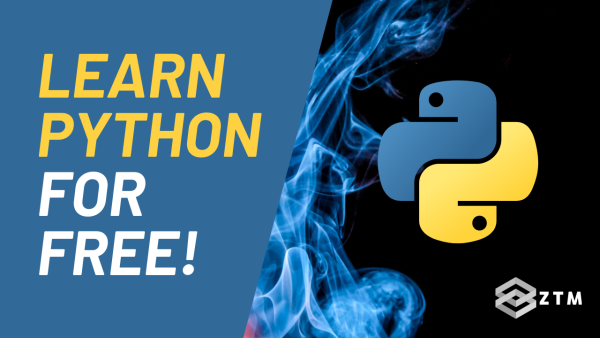
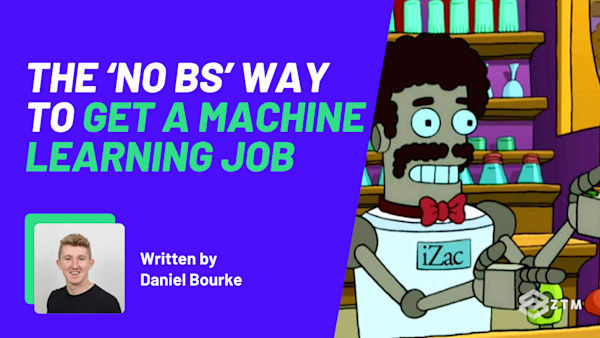

![[September 2025] AI & Machine Learning Monthly Newsletter preview](https://images.ctfassets.net/aq13lwl6616q/4AlNTN2G0RvNEvMCvcqOsp/587e80b7217a71253d38076668d36694/AI___ML_Monthly.png?w=600&h=338&q=50&fm=png&bg=transparent)